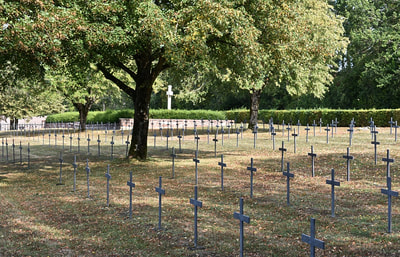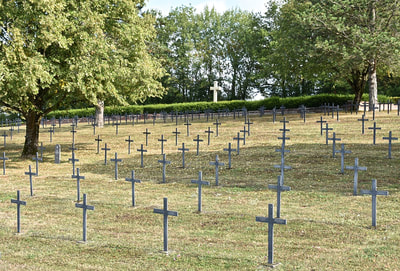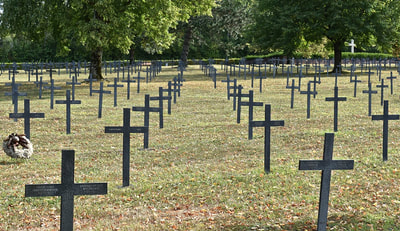BUZANCY GERMAN MILITARY CEMETERY
Ardennes
France
Location Information
Buzancy is a small village in the Ardennes region of Northern France. The German Military cemetery is located to the South of the village on the D. 12.
Historical Information
There are 5,923 German Servicemen and 1 Austrian/Hungarian soldier of World War One buried here.
Pictures © Nicholas Philpot
Buzancy is a small village in the Ardennes region of Northern France. The German Military cemetery is located to the South of the village on the D. 12.
Historical Information
There are 5,923 German Servicemen and 1 Austrian/Hungarian soldier of World War One buried here.
Pictures © Nicholas Philpot







